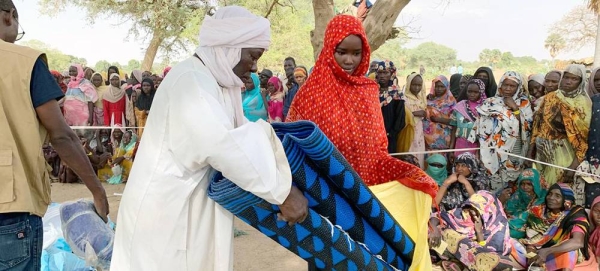
GENEVA: Red Cross chief Mirjana Spoljaric said Monday she hopes this week’s scheduled talks on the Sudan conflict will result in solid humanitarian steps and remove obstacles blocking a ceasefire.
The United States last month invited Sudan’s warring sides to hold ceasefire talks in Switzerland, more than a year after fighting broke out between the regular army and the paramilitary Rapid Support Forces (RSF).
Spoljaric, the president of the International Committee of the Red Cross, described the situation in Sudan as a “humanitarian disaster.”
“We are not part of these talks, but I do hope that they will find agreements that will allow us to increase humanitarian assistance, that will allow us to have more access to affected populations, especially in the north of Darfur the situation is extremely concerning,” she told a press conference at the ICRC headquarters in Geneva.
She called for “very concrete humanitarian steps that will help build the trust, and will help remove some of the immediate obstacles for a ceasefire agreement.”
The ICRC chief was speaking at an event marking the 75th anniversary of the Geneva Conventions — the international treaties governing humanitarian treatment in armed conflicts.
War has raged since April 2023 between the Sudanese regular army under Abdel Fattah Al-Burhan and the RSF, led by his former deputy Mohamed Hamdan Dagalo.
The conflict in Sudan has left tens of thousands dead and displaced more than 10 million people, according to the UN.
A recent UN-backed report said nearly 26 million people, or slightly more than half of the population, were facing high levels of “acute food insecurity.”
Previous negotiations in Jeddah, Saudi Arabia, have failed to end the fighting.
A Sudanese delegation arrived in Jeddah on Friday for talks with US mediators on conditions for the government’s participation in this week’s planned ceasefire negotiations in Switzerland.
Spoljaric called on both parties to “remain at the table until they have found an agreement on how to increase” the ICRC’s operational space in Sudan.
The organization’s access to civilians is limited due to the lack of necessary security agreements.
“What we need is the parties to come together to agree on very concrete steps to ease these restrictions and to improve the security for us as humanitarians to operate,” Spoljaric said.











